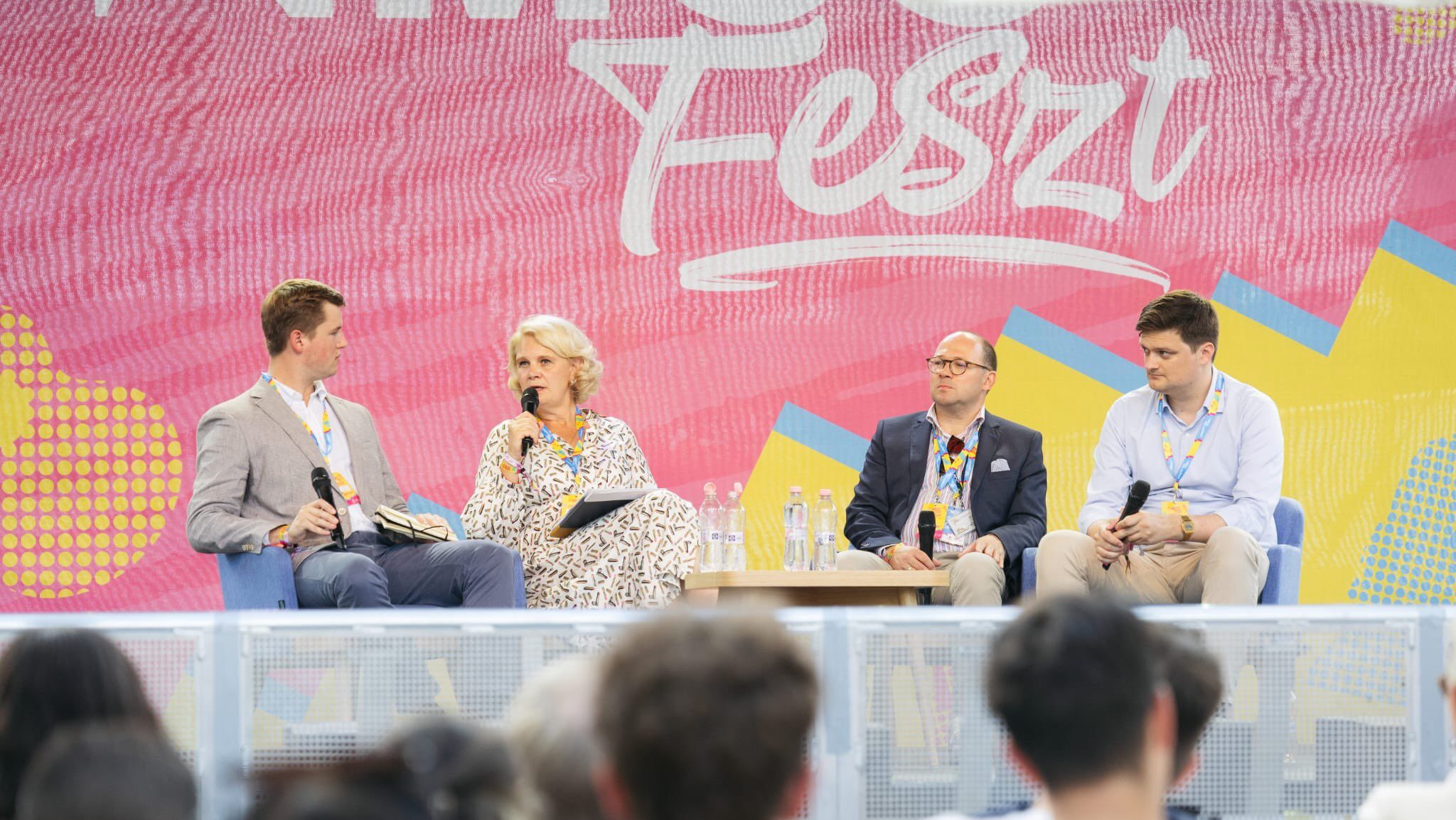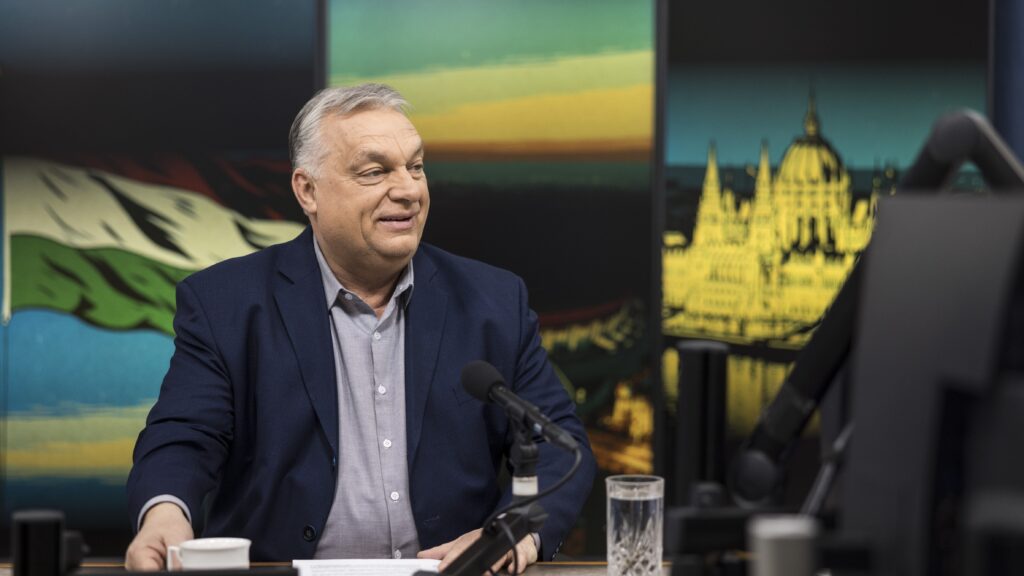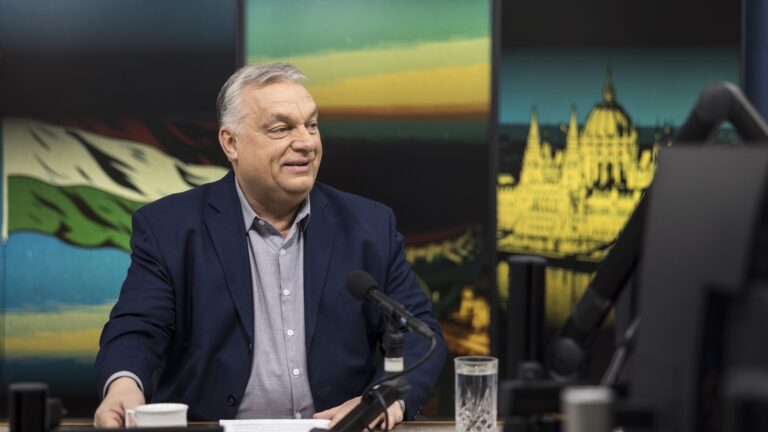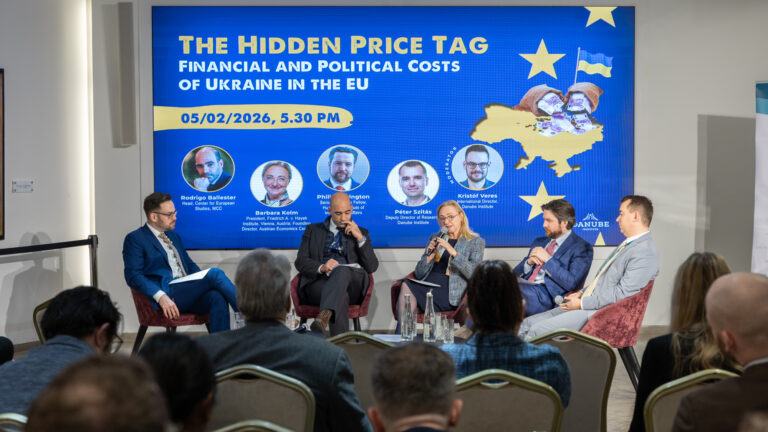A spokeswoman for Germany’s governing party, the Christian Democratic Union (CDU), condemned CDU MP Saskia Ludwig for meeting with right-wing Alternative für Deutschland (AfD) co-chair Alice Weidel in Esztergom, Hungary, during the fifth MCC Feszt over the weekend. According to the CDU’s statement, the party was unaware of Ludwig’s participation in Europe’s largest intellectual festival and reaffirmed its incompatibility decision with the AfD, ruling out any form of cooperation. ‘Every CDU member is bound by this,’ the statement read.
The so-called meeting was, in fact, a brief greeting and casual exchange during one of the panel discussions on German politics, in which Ludwig took part as a guest. Weidel—who had been received by Hungarian Prime Minister Viktor Orbán in Budapest just days earlier—was in the audience when the two encountered each other.
ULTRAKÆRL on X (formerly Twitter): “Ganz schön große Klappe für jemanden, die sich bestens mit Alice Weidel versteht und deren Doktorarbeit gerade von der Universität geprüft wird. Haben Sie den Mitgliedsantrag für die AfD schon ausgefüllt? Was sagt die @cducsubt dazu? pic.twitter.com/5ubFDTDESI / X”
Ganz schön große Klappe für jemanden, die sich bestens mit Alice Weidel versteht und deren Doktorarbeit gerade von der Universität geprüft wird. Haben Sie den Mitgliedsantrag für die AfD schon ausgefüllt? Was sagt die @cducsubt dazu? pic.twitter.com/5ubFDTDESI
Commenting to Nius, Ludwig said that ‘the exchange of opinions is a central element of a democratic society.’ For that reason, she considers it self-evident to ‘meet with a wide variety of visitors without having to fear repression.’ This marked Ludwig’s second time attending MCC Feszt.
There is broad consensus among German mainstream and progressive forces to maintain a so-called firewall against the AfD—excluding it from federal political cooperation, refusing to vote with its members, and even calling for the party to be banned. In 2018, the CDU Congress formally decided to reject any coalition or similar collaboration with the AfD. CDU leader and German Chancellor Friedrich Merz has repeatedly reaffirmed this stance—though earlier this year he basically breached it over migration policy—stating that any violation of the party line would result in immediate expulsion.
AfD is currently Germany’s second-largest party, trailing the CDU by just 1–2 percentage points in national polls. Since US President Donald Trump took office in January, Berlin has come under growing criticism from Washington for excluding Weidel’s party from political discourse. In his high-profile Munich speech, Vice President JD Vance publicly endorsed AfD ahead of Germany’s early elections in February, condemning the firewall as a violation of the shared democratic values the United States and the European Union ought to uphold.
Europe Elects on X (formerly Twitter): “Germany, INSA poll:CDU/CSU-EPP: 27%AfD-ESN: 25% (+1)SPD-S&D: 15%GRÜNE-G/EFA: 11%LINKE-LEFT: 10%BSW-NI: 4%FDP-RE: 3%+/- vs. 25-28 July 2025Fieldwork: 28 July – 01 August 2025Sample size: 1203➤ https://t.co/obOCVirbpF pic.twitter.com/nXPxfq8q5d / X”
Germany, INSA poll:CDU/CSU-EPP: 27%AfD-ESN: 25% (+1)SPD-S&D: 15%GRÜNE-G/EFA: 11%LINKE-LEFT: 10%BSW-NI: 4%FDP-RE: 3%+/- vs. 25-28 July 2025Fieldwork: 28 July – 01 August 2025Sample size: 1203➤ https://t.co/obOCVirbpF pic.twitter.com/nXPxfq8q5d
Ludwig has long been known for ‘speaking outside the mainstream’, often diverging from her party’s official line. In January, she publicly criticized the firewall policy, arguing in an interview with Berlin TV that it only benefits the AfD and the ‘left-wing camp’. At the time, she also expressed openness to a ‘centre-right coalition’. During her panel appearance at MCC Feszt, Ludwig again addressed the firewall, stating that in the state of Brandenburg, it is not a major issue. She added that she believes the CDU may one day cooperate with the AfD—provided that the party under Alice Weidel and Tino Chrupalla continues to shift its political direction.
The festival itself concluded with record participation: more than 50,000 people attended a wide range of panel discussions, lectures, and concerts throughout the weekend in Esztergom.
Related articles:







